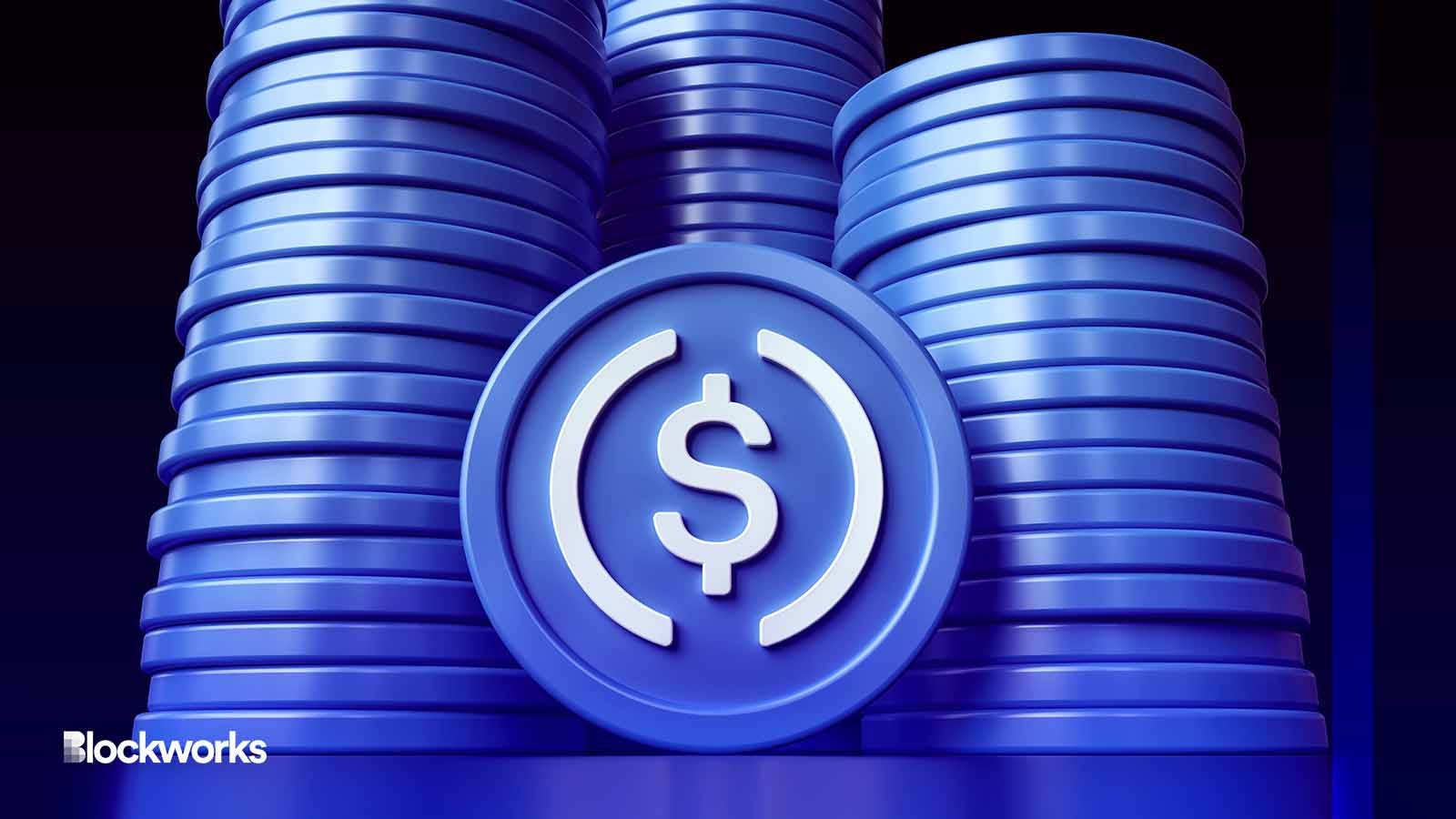Businesses can send USDC to any US bank account — with more stablecoins to come
New offering streamlines sending on-chain funds to off-chain counterparties — a process industry participants say is key to broader adoption of segment

dRender/Shutterstock modified by Blockworks
The CEO of startup Utopia Labs believes that the widespread adoption of seamless crypto payments may still be a decade away. However, that hasn’t stopped the company from taking strides to expedite this future through its latest initiatives.
Last month, Utopia Labs launched a product giving businesses the ability to send USDC to any US bank account. Entities are also able to send the stablecoin to USD accounts, such as ones offered by payments company Wise.
Utopia’s offering is built on top of Safe, a decentralized custody protocol and asset management platform on Ethereum. Utopia works with Bridge — which lets developers convert between dollar formats, including stablecoins — to help it move money.
“We’ve kind of skipped the intermediary process where retail users…go directly from self-custody right to [their] bank,” CEO Kaito Cunningham told Blockworks in an interview.
The world won’t migrate straight to crypto, said Andy Bromberg, CEO of the Eco App and a contributor to the Eco protocol.
“Building bridges like this are key to doing so — allowing companies to operate between the two paradigms and interface with counterparties in both,” Bromberg said.
When a user makes a payment of USDC through Utopia, an on-chain liquidation address is created to be associated with each bank account. There is a 0.3% fee for each transaction.
“Today, you’d have to sign up for an exchange, trade the on-chain funds for fiat and withdraw to your own bank account, and then send onwards to the counterparty,” Bromberg noted. “But Utopia is now allowing all of that in a single flow.”
Use cases for the product include venture capital funds sending USDC to portfolio companies, or DeFi projects off-ramping on-chain revenue. Cunningham said companies can even pay their Amazon Web Services (AWS) bill using crypto.
Collective and PleasrDAO are users, Utopia Labs noted in a tweet.
“We are actually talking to companies where they are questioning if they even need to have a bank account anymore,” Cunningham said. “Because they make all their money in crypto and the only use cases in which they need to interact with the real world are service providers and payroll use cases.”
Looking ahead
While Utopia currently uses the Ethereum blockchain, it is set to make the offering available on most other blockchains soon, Cunningham said.
Utopia also seeks to add support for other stablecoins going forward, including tether (USDT) in the coming weeks.
Read more: Why USDC’s market cap is half of what it was a year ago
“I believe in a multi-stablecoin future,” Cunningham told Blockworks. “We went with USDC first because that was what Bridge had provided in terms of [infrastructure].”
The Utopia Labs CEO said it might take 10 years before crypto payments see major traction. He called that future “not a reality at all” today — citing regulatory uncertainty among the hurdles.
“Crypto has to communicate with fiat for us to accelerate that future, and we think…it doesn’t have to be a separate product,” Cunningham said. “It should be ingrained and embedded within the users’ workflows.”
Start your day with top crypto insights from David Canellis and Katherine Ross. Subscribe to the Empire newsletter.





